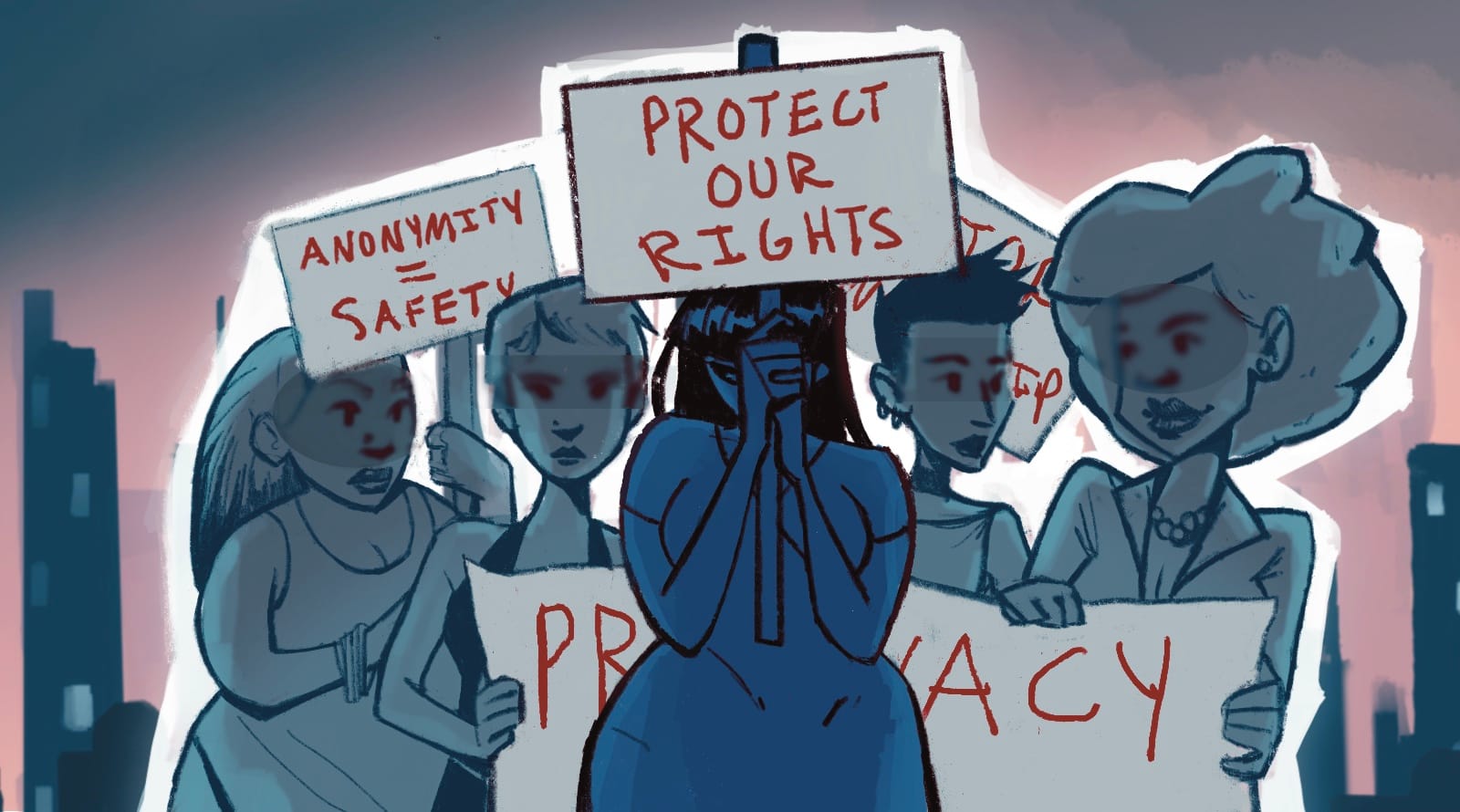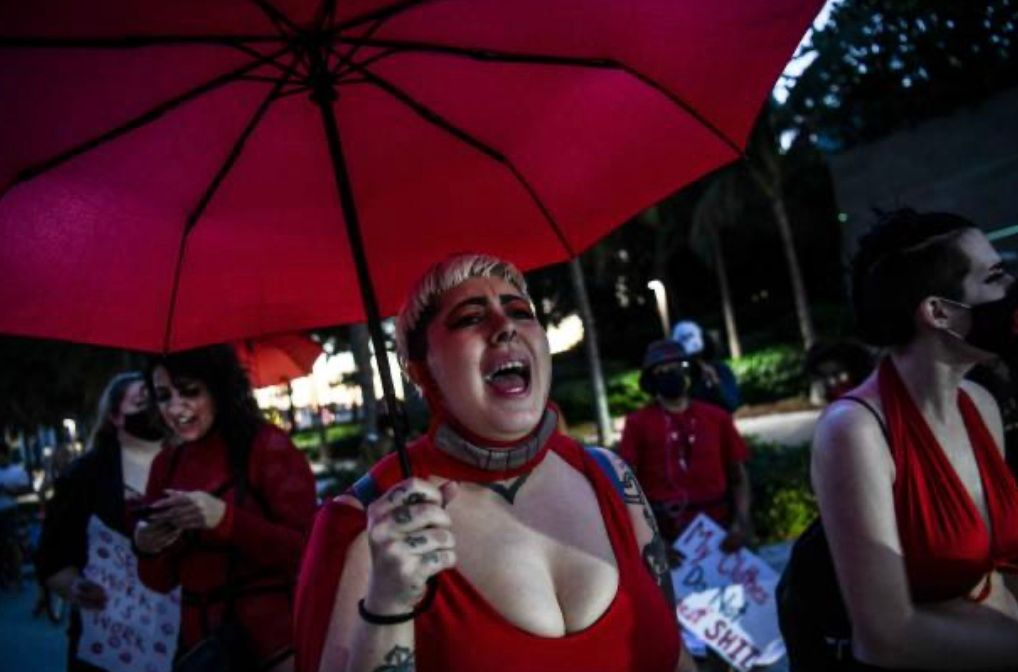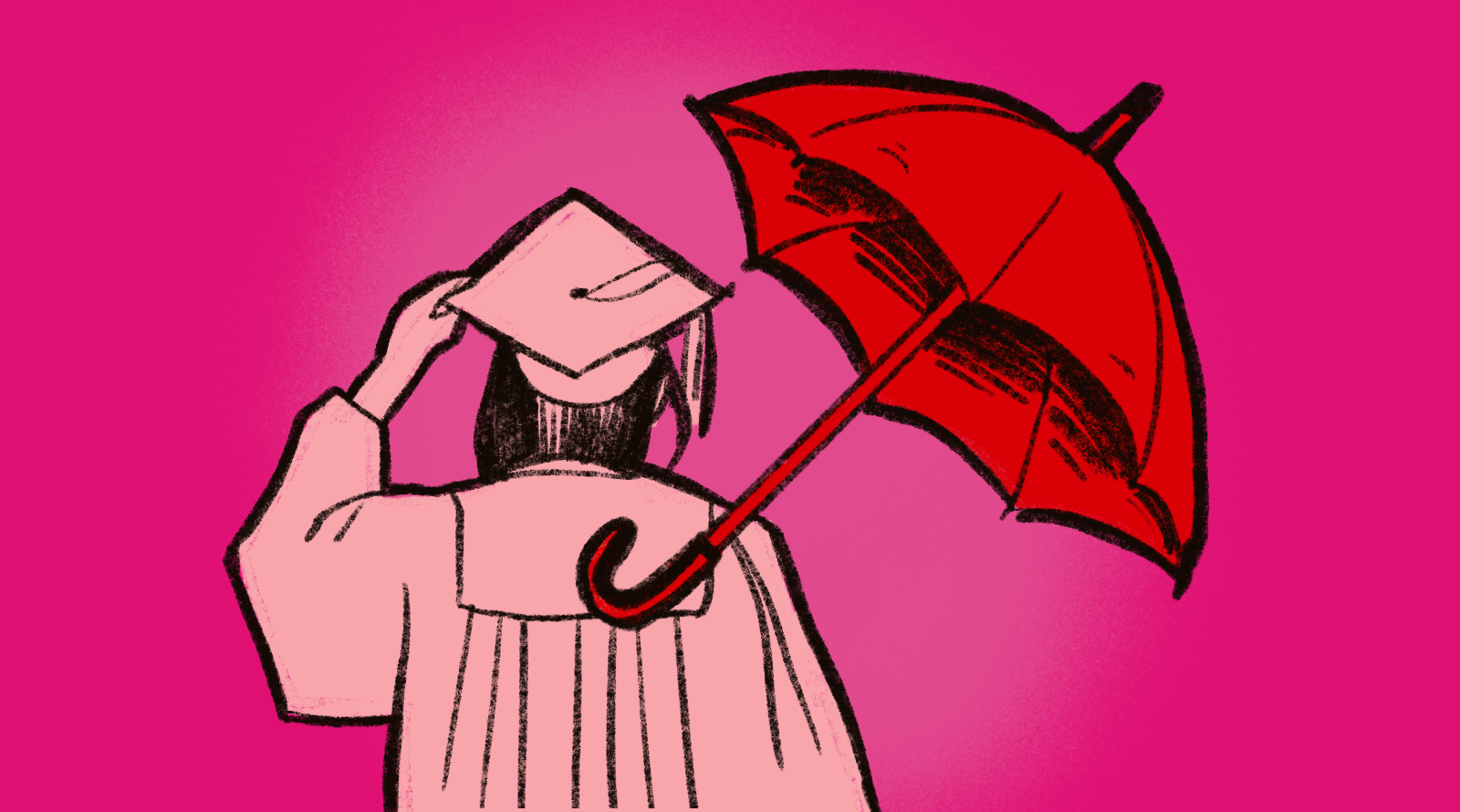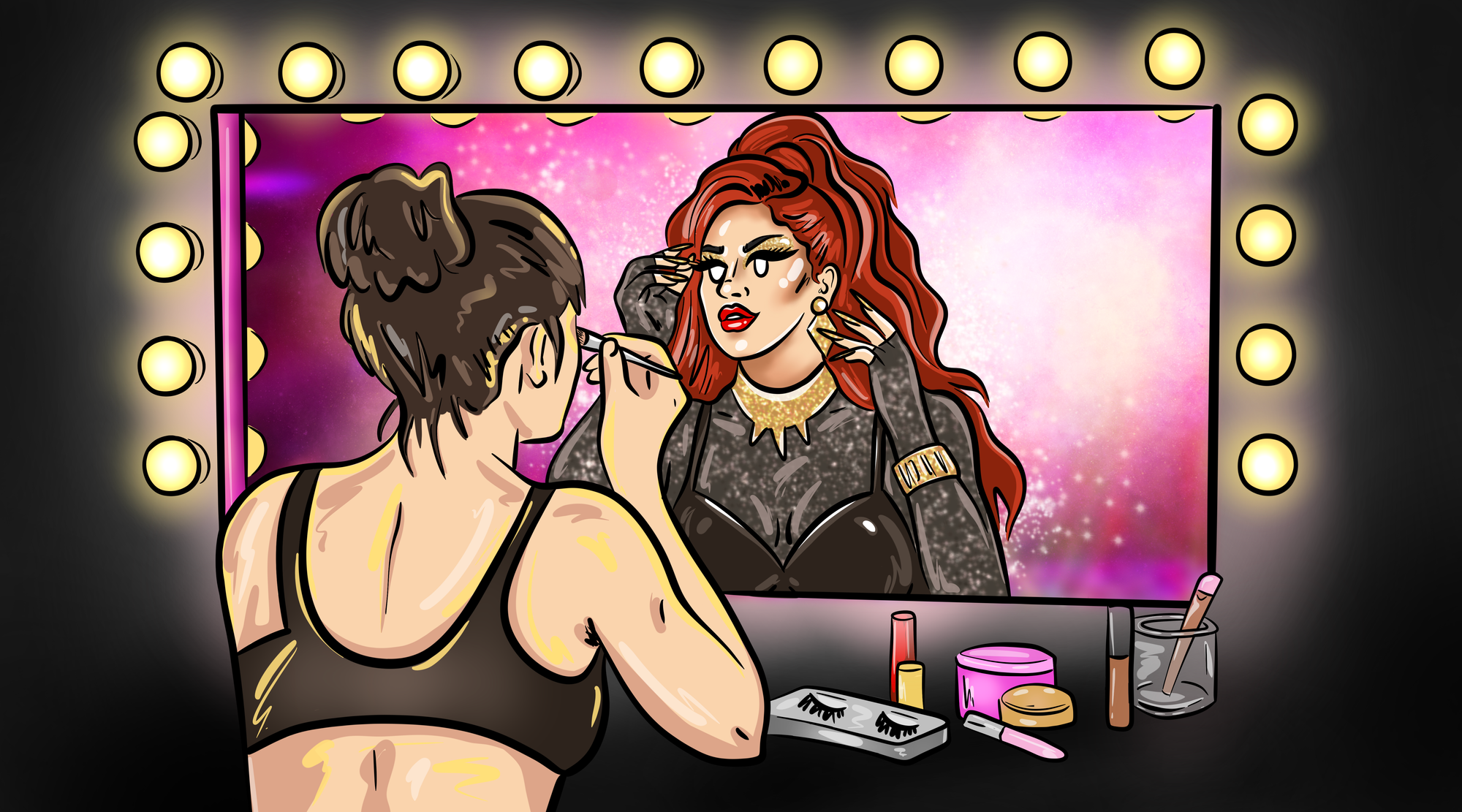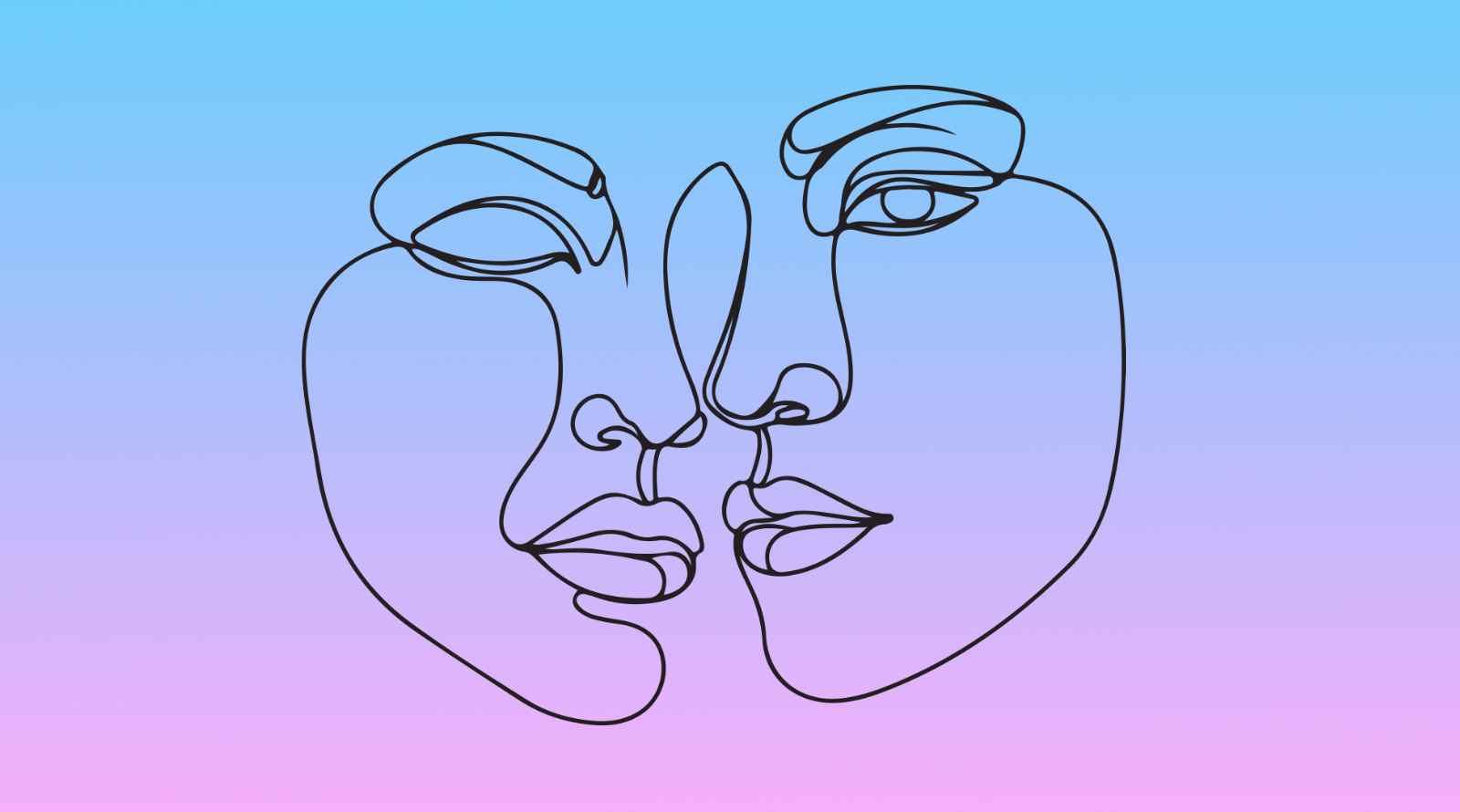The spectrum of anonymity in activism
When you think of anonymity, you probably imagine it in its extreme form: no name, no face, no information at all. However, anonymity exists on a spectrum. Not everyone accesses or can access it in the same way. Personally, I maintain a level of anonymity by keeping my personal and family information offline. Yet, I show my face, have been quoted in numerous articles, and have even gone viral on the news.
Speaking out, especially in political dissent, comes with significant risks. Many people cover their faces in public to avoid backlash. Others use VPNs to safeguard their location and informational data. There are countless methods to protect both digital and in-person anonymity today. However, it's crucial to recognize that no matter how many precautions you take, there will always be a risk. This is particularly true for sex workers, and even more so for those organizing within the sex work community. The fear of losing the protection that anonymity provides is very real. Yet, when engaging in activism, one must understand that every firewall could fail, exposing you to consequences. And these consequences, unjust as they are, still exist.
In Revolting Prostitutes, there are several passages that describe political organizing sex workers who tragically lost their lives advocating for their, and others' rights. As a Co-founder of Decrim 305, I have experienced the repercussions of being publicly visible in my organizing efforts. I've received death threats, been labeled a groomer by opponents, and have been doxxed, harassed, and surveilled by the police to the point where I had to step back from in-person sex work. I've been mass reported on social media by SWERFs, and I've faced harassment from fellow sex workers and "allies" on the left.
For me, being publicly visible is essential. It's harder to dismiss someone you can see. But it has taken a toll on me. I feel beat the fuck up. I understand why some people want to organize while remaining anonymous. The issue arises when those same people (or anyone) participate in harassing publicly visible activists like myself, knowing they can escape any consequences. I respect the choice to maintain anonymity, but it is essential to recognize the significant risks and personal costs involved in being publicly visible to advance our movement.
We won't gain our rights by asking politely. There is an entire system working against us. We are willing to face the fire for this cause, and we must work together to ensure each other's safety. "We keep us safe" applies to everyone on the spectrum of anonymity. Visibility is often framed only ever as a privilege, but hypervisibility? It's a huge risk. One that should be taken seriously.
The necessity of anonymity in today's world
In today's hyper-connected world, the ability to voice opinions and champion causes is more accessible than ever. However, this freedom comes with significant risks, including personal backlash, privacy invasion, and even physical danger. For many people, especially those living under oppressive regimes or in precarious personal situations, anonymity is not just a preference but a necessity.
Anonymous advocacy offers a crucial platform for these individuals to speak out without revealing their identities. It allows them to share their experiences, challenge injustices, and connect with others without quite as much fear of retribution. Anonymity as harm reduction. For some, the consequences of being publicly visible can be severe — ranging from social ostracization and loss of employment to threats of violence and imprisonment.
The spectrum of anonymity means that while some activists may choose to remain completely hidden, others might only conceal certain aspects of their identities. For instance, they might use pseudonyms online while participating in public protests. This blend of anonymity helps them navigate the delicate balance between making their voices heard and protecting their personal safety.
Legislative changes, such as the EARN IT Act and modifications to Section 230, along with SESTA/FOSTA, have further complicated the landscape of digital advocacy. These laws, aimed at combating online exploitation, have inadvertently led to increased digital censorship and have made online platforms less safe for marginalized communities. For activists, especially those in the sex work community, these changes have heightened the need for robust online protection and anonymity. The unintended consequences of these laws have created a chilling effect, where fear of censorship or legal repercussions stifles important conversations and advocacy efforts.
It's essential to understand and respect the choices individuals make regarding their anonymity. Just as there are those who take on the risks of being publicly visible to help push the movement forward, there are also those who contribute significantly from behind the scenes. Both approaches are necessary. The fight for rights and justice requires a collective effort where everyone, regardless of their level of anonymity, works together to support and protect one another.
In the end, maintaining anonymity is a strategic and often life-saving decision for many activists. By respecting and understanding the diverse ways people engage in advocacy, we can build a stronger, more inclusive movement that values and protects all its members.
Why Anonymous Advocacy Matters
- Protection from Retaliation: In many parts of the world, speaking out against government policies, social injustices, or powerful individuals can lead to severe repercussions. Anonymous advocacy allows individuals to express their views and share critical information without fear of reprisal.
- Encouraging Open Discourse: Anonymity can foster more open and honest conversations. People may feel more comfortable sharing their true opinions and experiences when their identities are concealed, leading to richer and more diverse dialogues.
- Safeguarding Personal Privacy: Even in relatively free societies, the fear of public scrutiny or personal embarrassment can deter people from speaking out. Anonymous advocacy allows individuals to contribute to important conversations while protecting their personal privacy.
- Empowering Vulnerable Groups: Marginalized or vulnerable groups, such as whistleblowers, survivors of abuse, and those facing discrimination, often rely on anonymity to share their stories and advocate for change without exposing themselves to further harm.
How to Advocate Anonymously
- Online Platforms and Social Media: The internet provides numerous platforms where individuals can create anonymous accounts to share their views, report injustices, and mobilize support for causes. Websites like Reddit, Twitter, and specialized forums offer spaces for anonymous discourse.
- Encrypted Communication: Using encrypted messaging apps such as Signal or Telegram can help protect the identities of activists and advocates when they communicate with each other and the public.
- Anonymous Publishing: Platforms like Medium, Anonymous.org, and WikiLeaks allow individuals to publish articles, documents, and reports without revealing their identities. These platforms often have robust measures to protect the anonymity of contributors.
- Virtual Private Networks (VPNs): VPNs can help mask the IP addresses of users, making it more difficult to trace their online activities back to them. This is particularly useful for advocates operating in restrictive environments.
- Proxies and Tor Network: Proxies and the Tor network provide additional layers of anonymity by routing internet traffic through multiple servers, obscuring the user’s location and identity.
Challenges of Anonymous Advocacy
- Credibility Issues: Anonymous sources can sometimes be viewed with skepticism. Without a known identity, it can be challenging to establish the credibility of the information being shared.
- Legal Risks: In some jurisdictions, anonymity itself can be a legal risk. Governments may have laws against anonymous communication or may actively work to unmask anonymous advocates.
- Security Concerns: Despite using various anonymity tools, there is always a risk of being unmasked through sophisticated tracking techniques, data breaches, or human error.
- Ethical Considerations: Anonymous advocacy can sometimes be misused for malicious purposes, such as spreading false information, harassment, or incitement to violence. This necessitates a careful balance between protecting anonymity and ensuring accountability.
Real-World Examples of Anonymous Advocacy
- Whistleblowers: Individuals like Edward Snowden and Chelsea Manning used anonymity to leak classified information exposing government surveillance and military misconduct. Their actions sparked global debates on privacy and government accountability.
- #MeToo Movement: The #MeToo movement gained momentum as survivors of sexual harassment and assault shared their stories anonymously on social media. The anonymity provided a safe space for survivors to come forward without fear of backlash or stigma, leading to widespread awareness and significant changes in how sexual harassment is addressed in various industries.
- Arab Spring: During the Arab Spring, activists used anonymous online platforms and social media to organize protests and share information about government abuses. Anonymity was crucial for their safety, as governments in the region actively targeted and persecuted dissenters. The movement led to significant political changes in several countries, highlighting the power of anonymous advocacy in driving social change.
- Anonymous (Hacktivist Group): Anonymous is perhaps one of the most well-known examples of using online anonymity for activism. The decentralized hacktivist group has targeted various organizations and governments worldwide to protest censorship, corruption, and perceived injustices.
- Tor Project and Online Privacy Advocates: Projects like Tor provide tools for anonymous communication online, crucial for journalists, activists, and citizens in repressive regimes to access and share information safely.
- Hong Kong Protests (2019-2020): Protesters in Hong Kong utilized encrypted messaging apps like Telegram to coordinate actions, share information, and evade government surveillance during the pro-democracy protests. Many participants used face masks and other measures to protect their identities during demonstrations.
- Occupy Wall Street: The Occupy Wall Street movement, which began in 2011, utilized social media and anonymous online forums to organize protests against economic inequality and corporate influence in politics. Participants often used pseudonyms to discuss tactics and share information securely.
Anonymous advocacy is a powerful tool for protecting the voices of those who might otherwise be silenced. It enables individuals to speak out against injustice, share critical information, and participate in public discourse without fear of personal repercussions. However, it also comes with challenges that must be carefully navigated to maintain both the integrity and safety of advocacy efforts. As technology continues to evolve, so too will the methods and implications of anonymous advocacy, making it an enduring and vital aspect of our global society. By understanding and respecting the spectrum of anonymity, we can ensure that all voices are heard and protected in the fight for justice.
For advice on online anonymity, see Ada Hamilton's blog post Managing Anonymity Online for Sex Workers.
Are you a sex worker with a story, opinion, news, or tips to share? We'd love to hear from you!
We started the tryst.link sex worker blog to help amplify those who aren't handed the mic and bring attention to the issues ya'll care about the most. Got a tale to tell? 👇☂️✨

